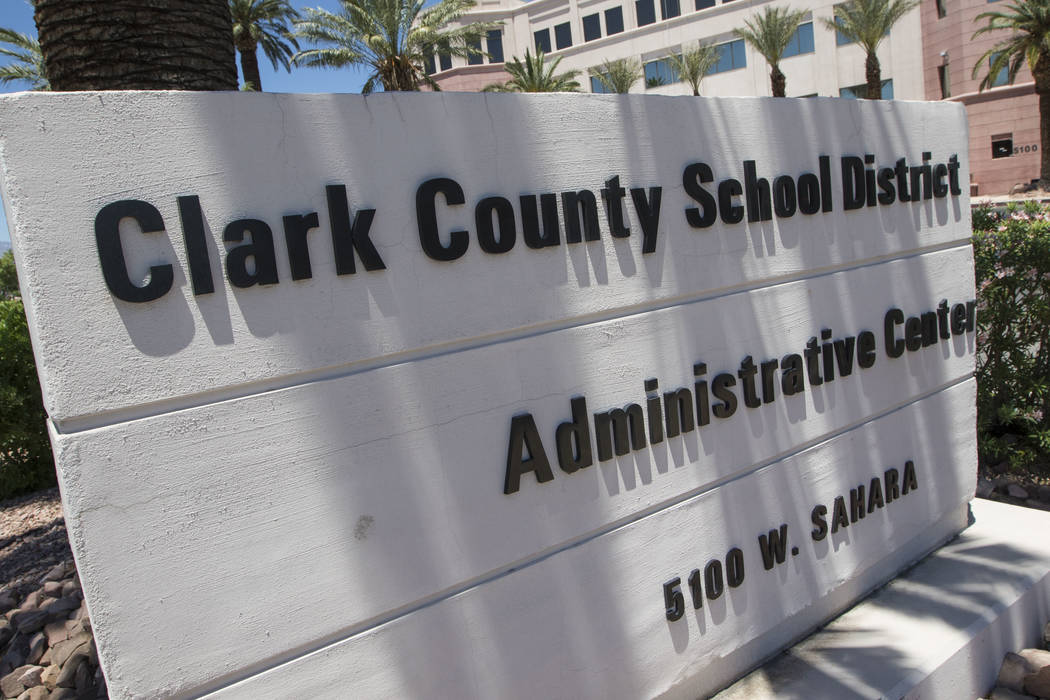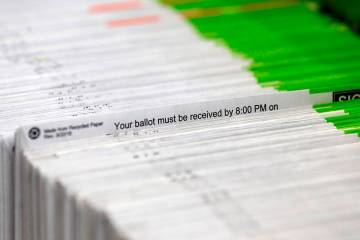EDITORIAL: Graduation rates and test scores
State education officials this week touted Nevada’s rising high school graduation rate, which inched northward to more than 84 percent this year. But what happens if you hold a graduation ceremony and everybody comes?
There’s no doubt that Nevada and Clark County have made strides in terms of handing out more diplomas. In 2011, Clark County’s graduation rate was a dismal 59 percent. Today, that number is 85.8 percent.
But left unsaid is that the state no longer requires students to pass a proficiency exam demonstrating mastery of basic math, reading and science before receiving diplomas. There is, in fact, now a glaring disconnect between measured achievement levels and graduation rates.
In 2019, Nevada scores on the National Assessment of Educational Progress revealed that a majority of the state’s fourth- and eighth-graders continue to struggle mightily in both math and reading. In Clark County, just 27 percent of those entering high school scored well enough on standardized test to be considered proficient in reading. The number for math, 24 percent, was even worse.
At the same time, Nevada’s ACT results trail the nation. While scores on the college entrance exam did inch higher in 2018, the state’s average composite score of 17.9 was the worst in the country. Some of this can be attributed to the fact that Nevada — unlike many states — requires all high school juniors to take the test. But the state still brought up the rear among the 14 states that test all students, and the numbers leave little doubt that Nevada high schools are leaving many graduates unprepared for the rigors of higher education.
This is borne out by remediation numbers at UNLV, UNR and other campuses. According to statistics from the university system, a majority of Nevada high school graduates enrolling in a state college or university — even those who earn Millennial Scholarships by receiving higher grades — must be diverted into basic math and English courses before they’re deemed ready for the college curriculum.
That raises obvious questions: What is the value of a Nevada high school diploma if it doesn’t at least convey that the holder is literate and has a working knowledge of rudimentary mathematics? What message does it send to employers or institutions of higher learning if graduation rates soar but achievement levels remain stagnant?
The graduation rate “is an important metric,” said Mike Barton, a top administrator with the Clark County School District, “but it’s only one of many. We’re not solely focused on the graduation rate.”
That, one would hope, should go without saying.




























